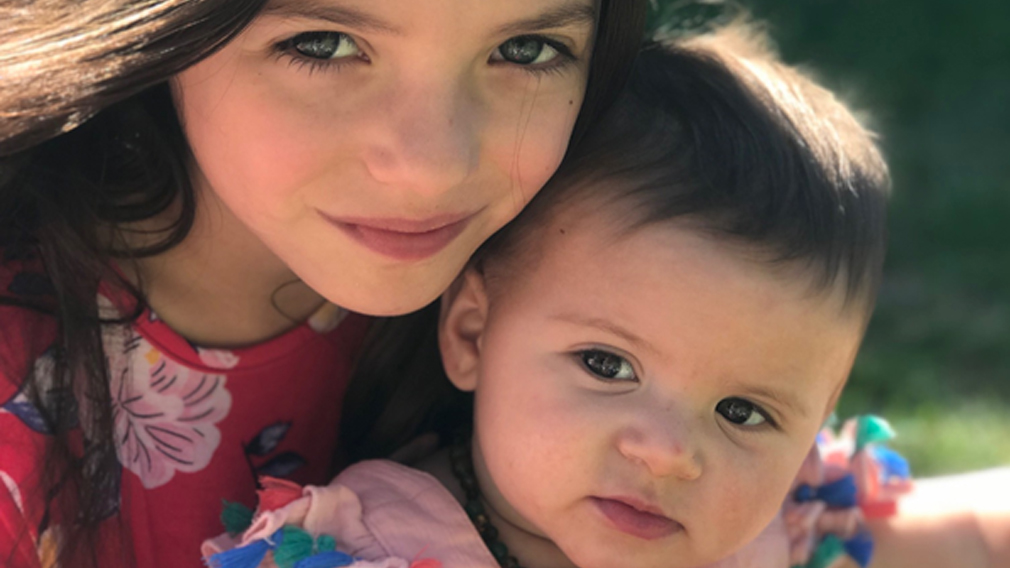The signs were everywhere, but I didn’t see them

Tiffany De Sousa Machado’s daughters, Faith (left) and Rumi. (Supplied)
I found myself on the walking path again, for the third time that day, Faith clinging to me like a little koala.
I looked up into my neighbour’s window. She was talking to her daughter and as usual, I felt the deep loss of not having my mum with me – especially now. Tears filled my eyes and I realised I was sad not only for me but for my beautiful girl who would never be spoiled by her nanna. It hurt so much that I gave her more of me than I could spare, to the detriment of my relationship with my husband, my work, myself.
The loneliness was unrelenting, almost malicious. It would steal any moment I tried to make beautiful.
Looking back – and knowing what I’ve learnt about postnatal depression through my PhD – I feel so much compassion for myself. I want to cry for the pain I felt.
I also now know this isn’t a problem that affects only a few.
Around 13 per cent of women are affected physically, psychologically and behaviourally by postnatal depression. It also affects partners, children and families.
While affecting every new parent differently, it can negatively influence the ability to function, marital relationships and the ability to bond with your child, which in turn can have implications on the child’s short and long term social and cognitive development. If you have other children, they can also be impacted, influencing their wellbeing at school and socially.
And on and on it can go throughout the community.
Some suggest this type of distress is largely inevitable – normal – when we have a baby.
But perhaps, it is compounded by the way we live today.
In today’s individualist culture we are separated not only geographically but psychologically, causing us to more often suffer alone.
And for many women, we often take on two roles – breadwinner and mother. There is enormous pressure to be the happy, perfect mother, partner and employee, able to manage it all. When we can’t, shame prevents many from seeking help because – like me – we feel we have failed.
To connect is primal.
As mothers, it’s how we learn about what to do, how we share the load, how we regulate and release our emotions and how we feel normal. We connect for validation, for appraisal, for guidance and for empathy.
Social support – in particular peer-to-peer support – can buffer the effects of distress and help to keep down-days as down-days, rather than accumulating into weeks, months and even years. The simple act of connecting with another often helps.
And this is where I’ve dedicated my work: supporting new mums who may need a little extra support, helping to improve the experience of motherhood through new approaches to facilitate connections. A new initiative is an app I expect to release in January that will help bring new mums together, geographically and emotionally.
With Perinatal Anxiety & Depression Awareness Week this week, it’s a good time to remember postnatal depression is not a simple diagnosis, nor does it have a simple fix.
It’s as individual and multifaceted as the mums who are affected.
As I sit here today with my second beautiful daughter Rumi on my lap, I have a very different perspective.
This isn’t a woman’s problem, though we often bear the brunt. This falls to all of us. Individually and societally there needs to be acknowledgement, responsibility and change in taking care of our new mothers.
Tiffany De Sousa Machado is currently completing her PhD in Psychology (health) with the support of a Westpac Future Leaders Scholarship.

